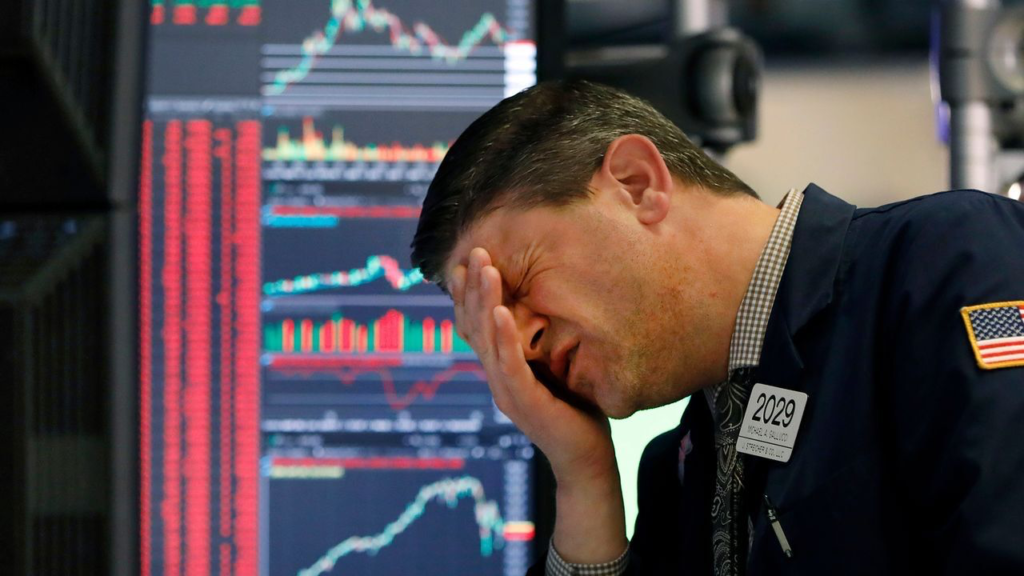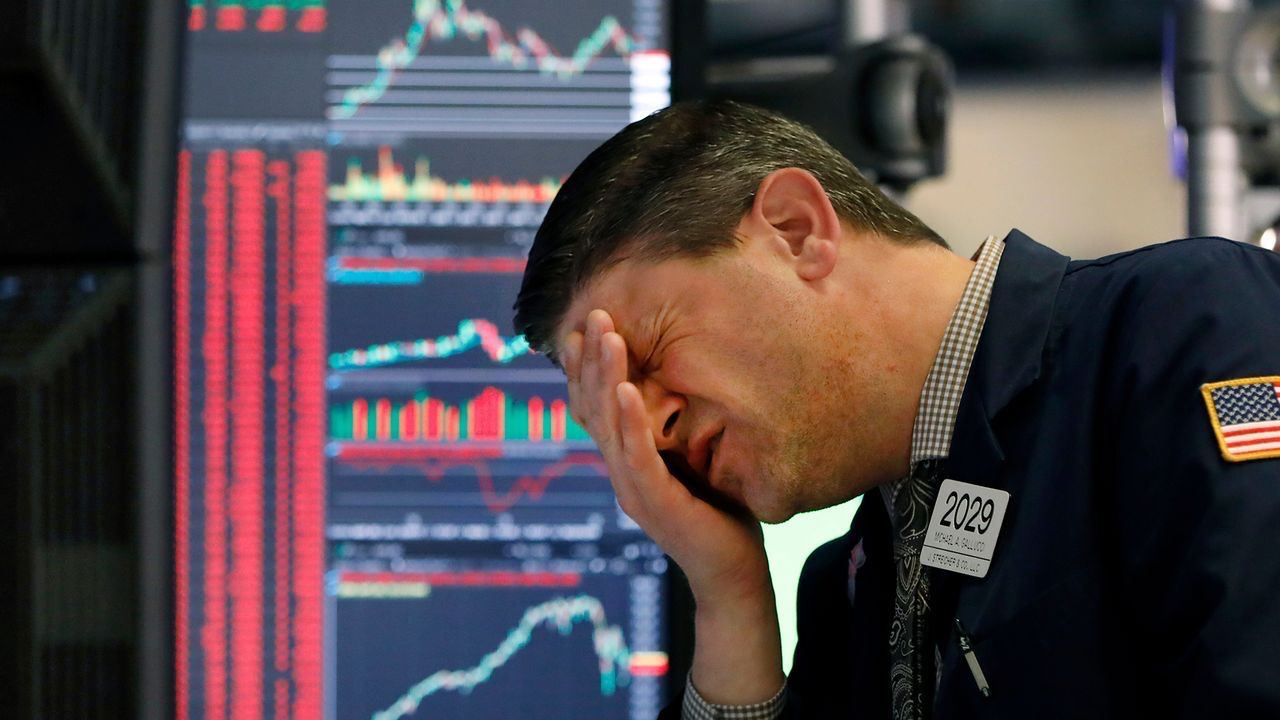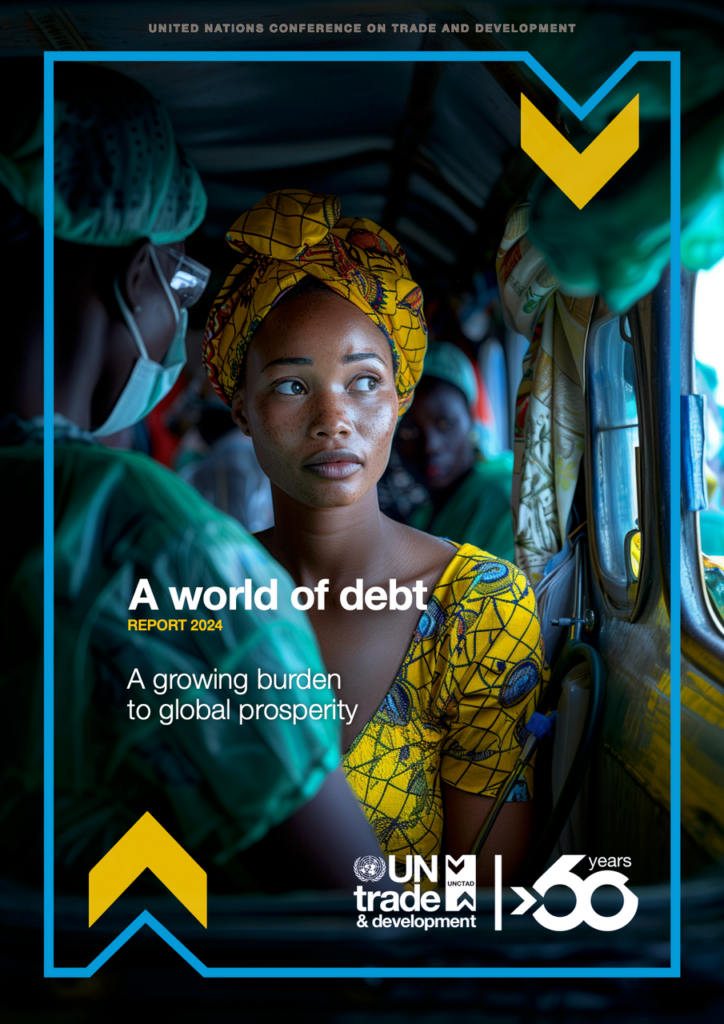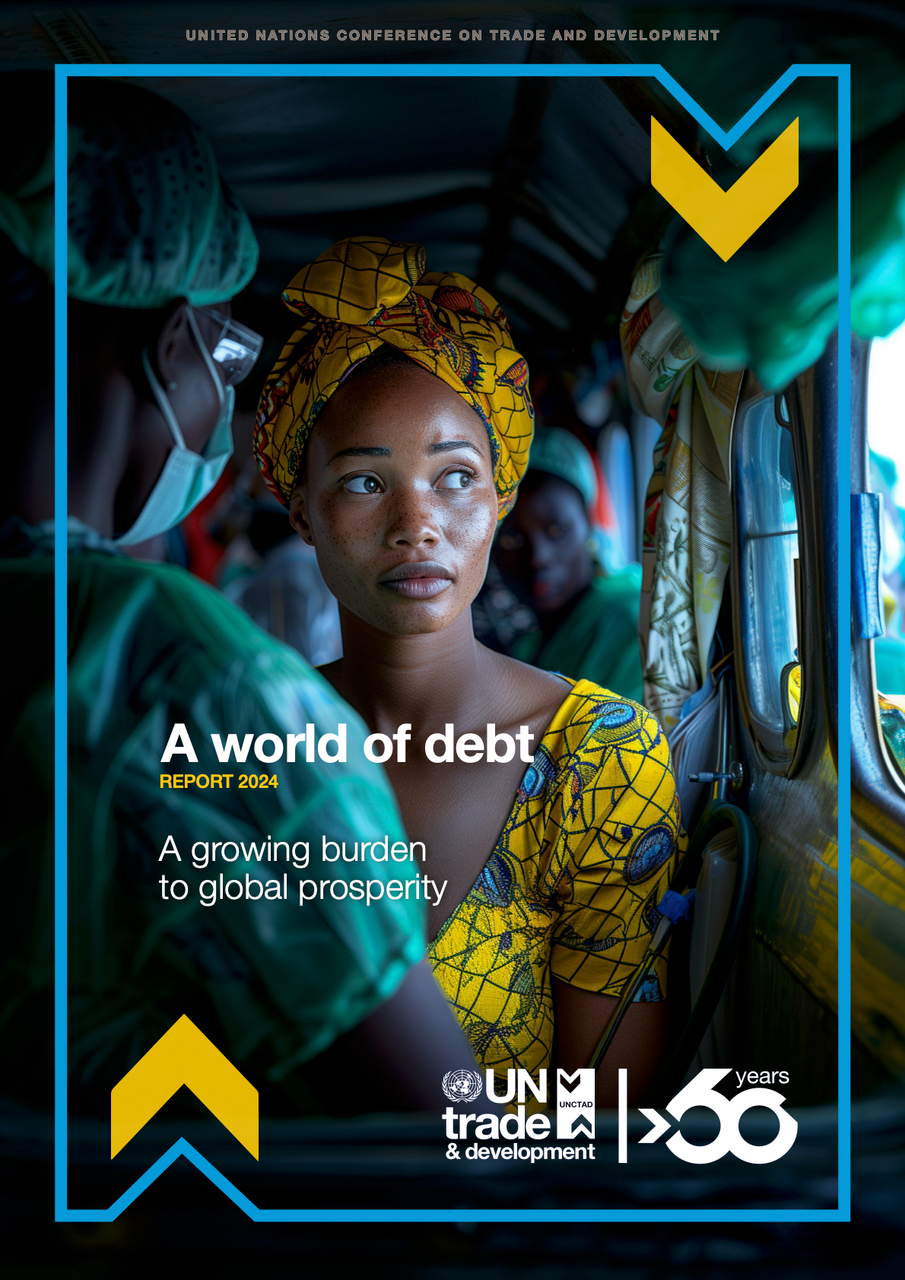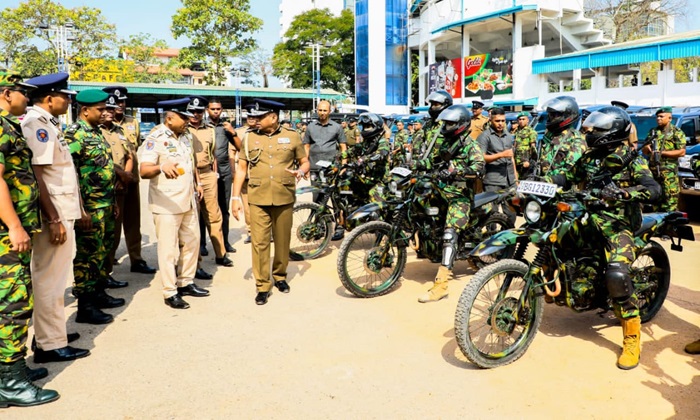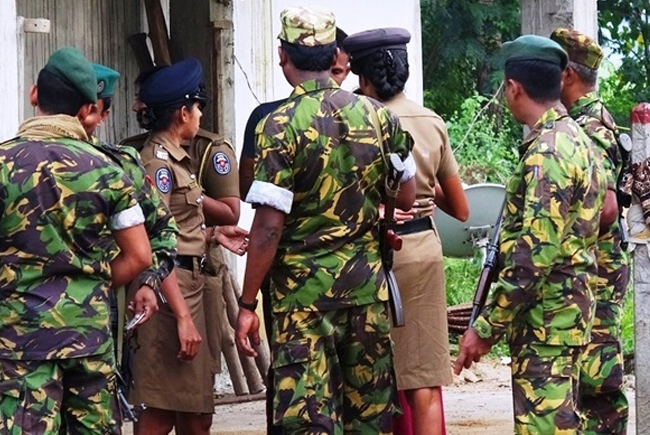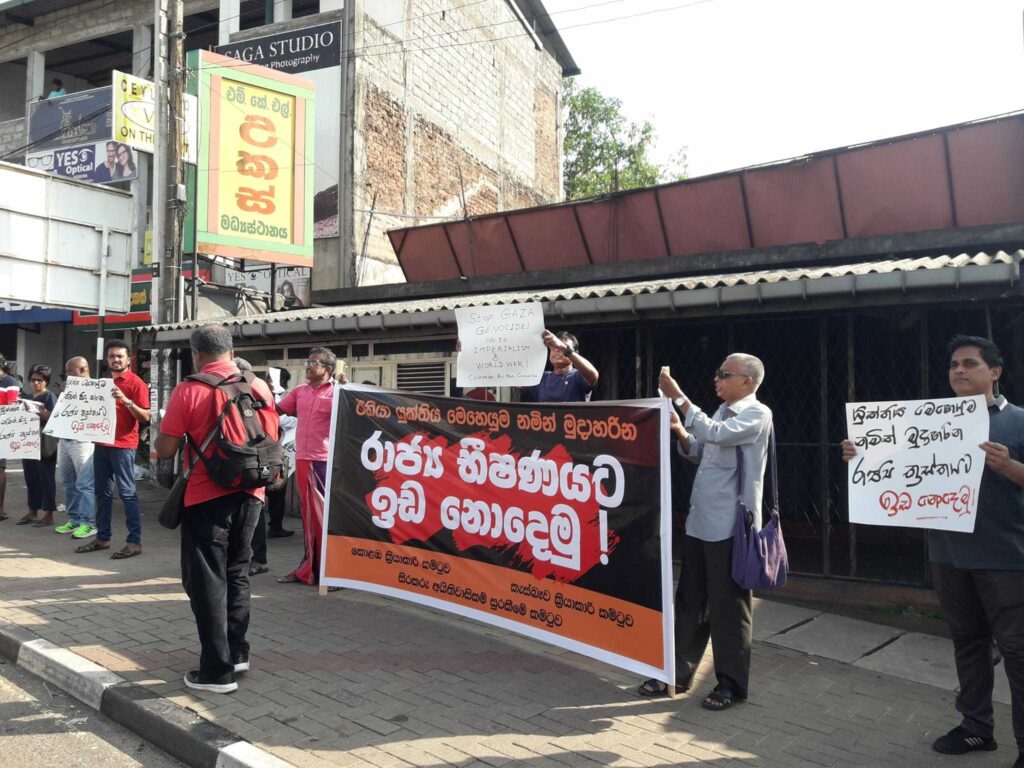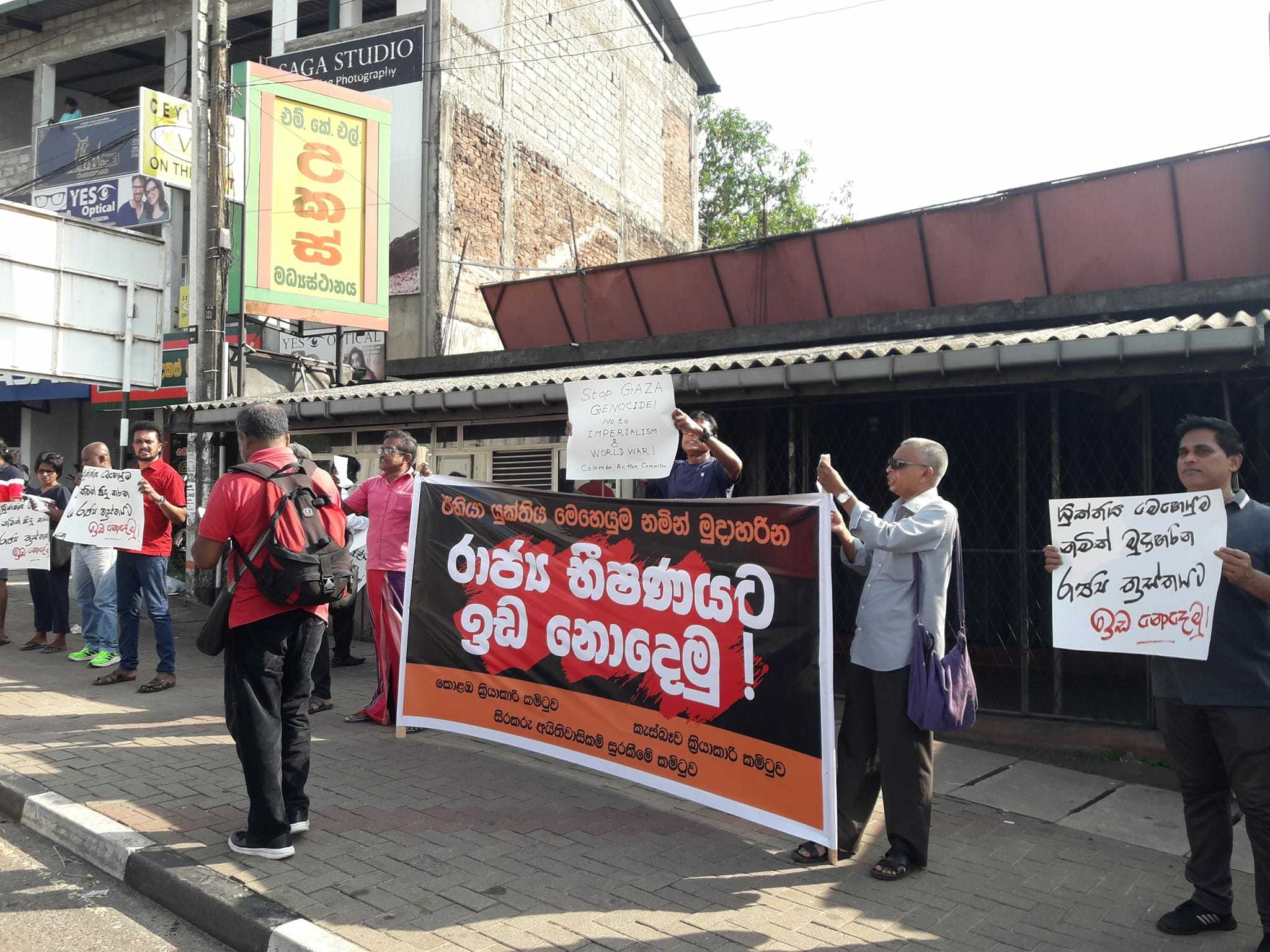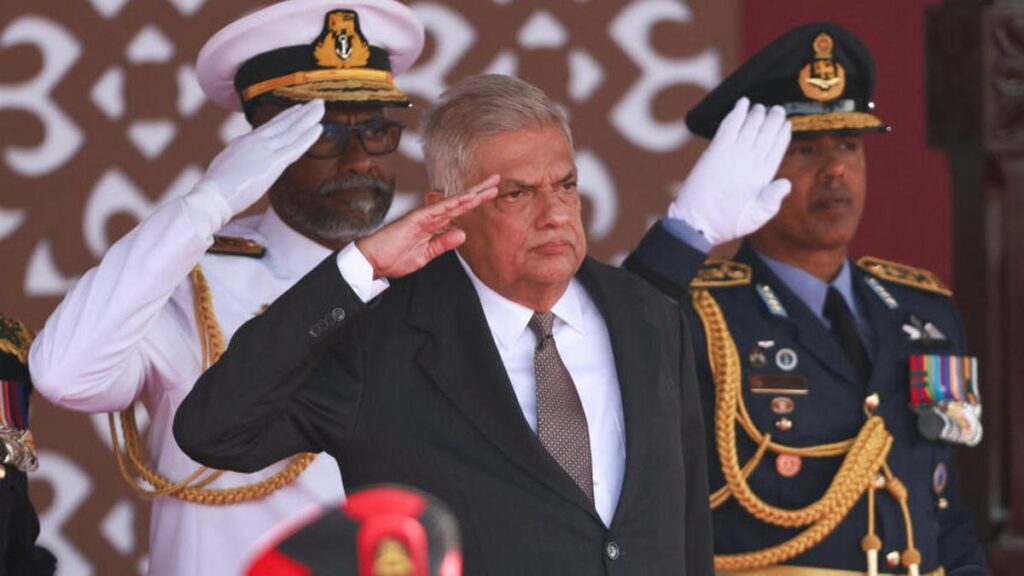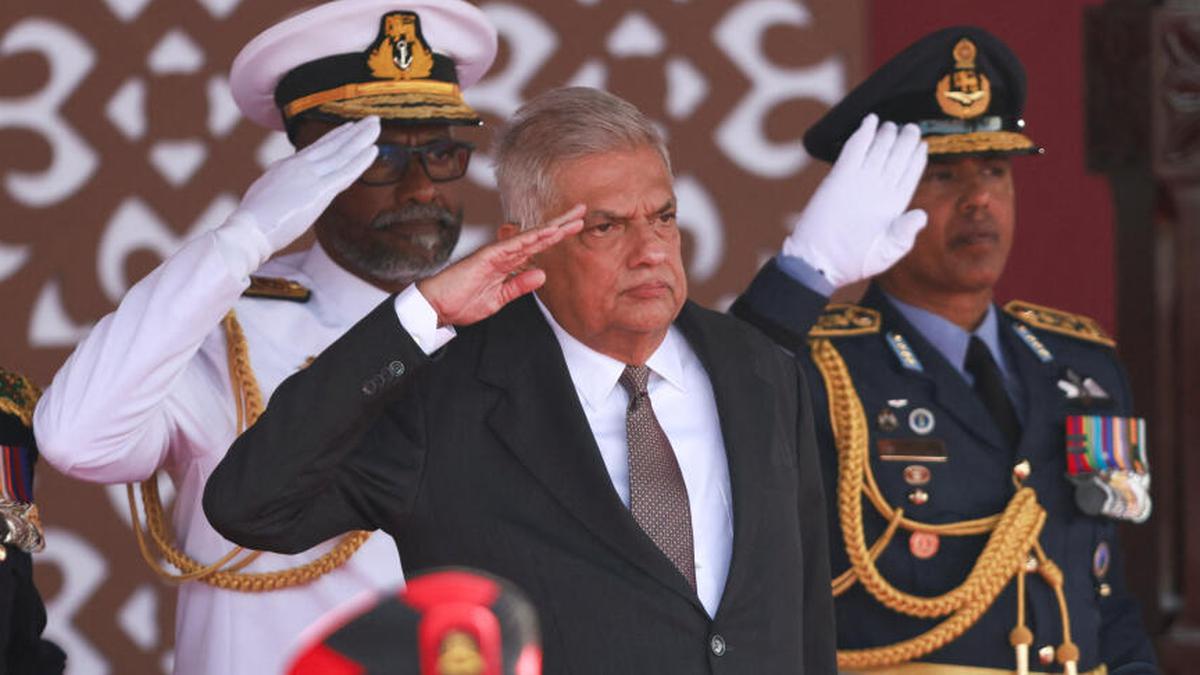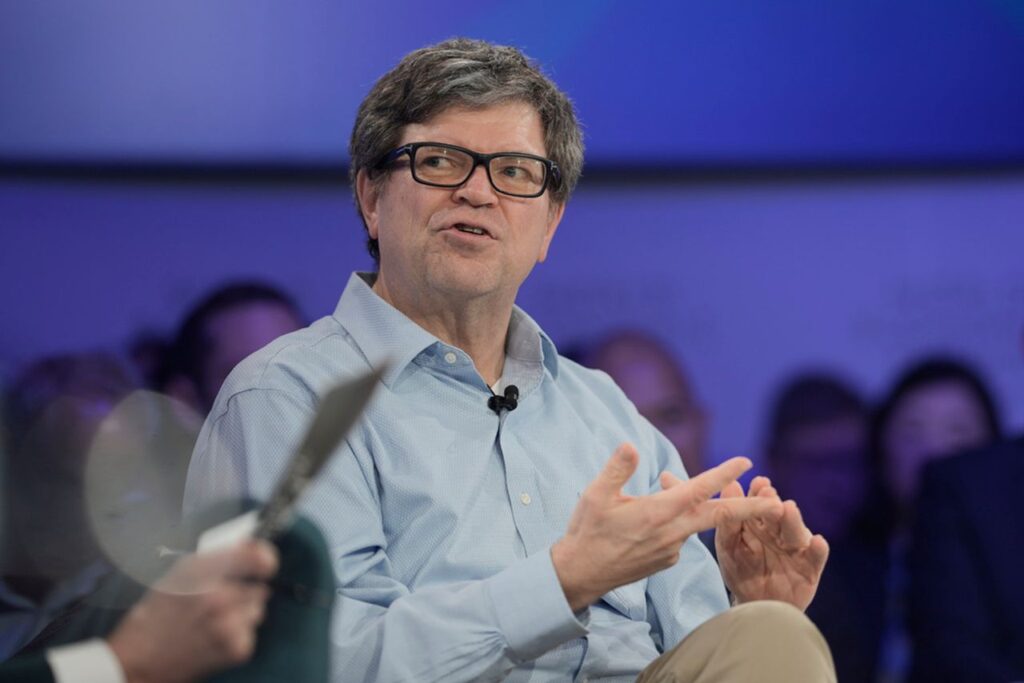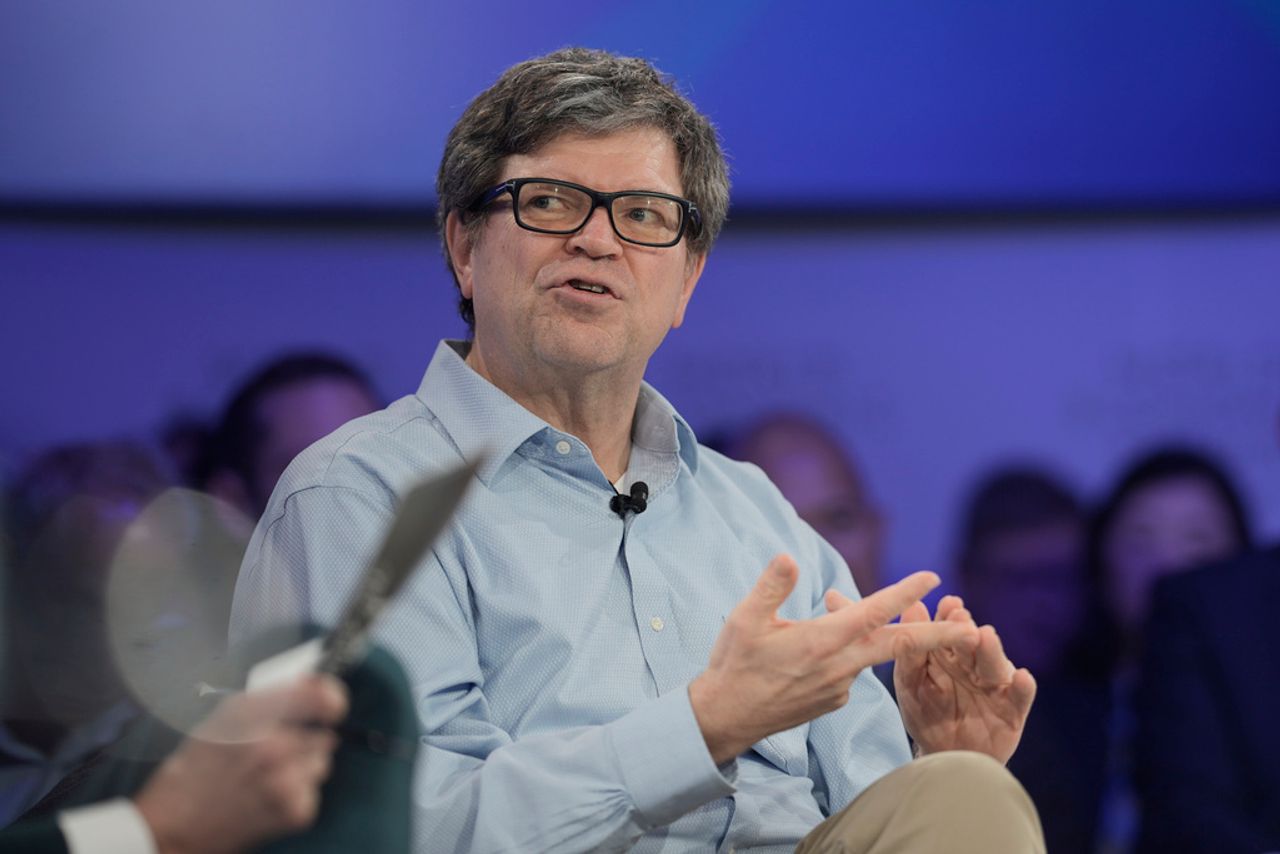බිලියනපතියන්ගේ ධනය ඩොලර් ට්රිලියන 2 කින් පිම්මේ ඉහළ යද්දී, “රදල කතිපයාධිකාරය” විසින් ලෝකය පාලනය කරන බව ඔක්ස්ෆැම් පවසයි
ආන්ඩ්රේ ඩේමන් විසිනි.
මෙහි පලවන්නේ ලෝක සමාජවාදී වෙබ් අඩවියේ 2025 ජනවාරි 20 දින “Oxfam says world ruled by “aristocratic oligarchy,” as billionaire wealth surges by $2 trillion” යන හිසින් පල වූ ආන්ඩ්රේ ඩේමන් විසින් ලියන ලද ලිපියේ සිංහල පරිවර්තනය යි. පරිවර්තනය සුනිල් ප්රනාන්දු විසිනි.

සඳුදා, ඔක්ස්ෆැම් දරිද්රතාවයට එරෙහි පුණ්යායතනයෙහි වාර්ෂික වාර්තාවට අනුව, 2024 දී ලෝකයේ බිලියනපතියන්ගේ ධනය ඩොලර් ට්රිලියන 2කට ඉක්මවා වැඩි වීය. ගෝලීය සමාජය තුල වැඩි වැඩියෙන් ආධිපත්යය දරන්නේ “රදල කතිපයාධිකාරයක්” විසින් බව ඔක්ස්ෆෑම් අනතුරු ඇඟවීය.
ලෝක බිලියනපතියන්ගේ ධනය 2024 දී ඩොලර් ට්රිලියන 13 සිට ඩොලර් ට්රිලියන 15 දක්වා වර්ධනය වූ බව පුණ්යායතනය වාර්තා කළේය; එය 2023 ට වඩා තුන් ගුණයක වේගවත් බවකි.
2024 දී ධනවත්ම පුද්ගලයන් 10 දෙනාගේම ධනය සාමාන්යයෙන් දිනකට ඇමෙරිකානු ඩොලර් මිලියන 100කින් පමණ වර්ධනය විය.
බිලියනපතියන් සංඛ්යාව 204 කින් 2,769 දක්වා වර්ධනය විය. සාමූහිකව, ඔවුන්ගේ ධනය සෑම දිනකම ඩොලර් බිලියන 5.7 කින් පමණ වර්ධනය වූ අතර සාමාන්යයෙන් සතියකට නව බිලියනපතියන් හතර දෙනෙකු බිහි විය.
දශකය අවසන් වන විට ලෝකයේ ට්රිලියනපතියන් එක් අයෙකු පමණක් සිටිනු ඇති බවට වූ එහි පසුගිය වසරේ ඇස්තමේන්තුව සමඟ සංසන්දනාත්මකව, මෙ වසරේ ඔක්ස්ෆැම් සිය වාර්තාවේ පුරෝකථනය කළේ , ඒ වන විට ට්රිලියනපතියන් පස් දෙනෙකු සිටිනු ඇති බවයි.
“අපගේ ගෝලීය ආර්ථිකය වරප්රසාද ලත් සුළු පිරිසක් විසින් ග්රහණය කර ගැනීම, අතීතයේදී අපට සිතා ගැනීමටවත් නොහැකි තරම් ඉහළ මට්ටමකට පැමිණ තිබේ” යැයි ඔක්ස්ෆෑම් ජාත්යන්තර විධායක අධ්යක්ෂ අමිතාබ් බෙහාර් පැවසීය. “බිලියනපතියන් බිහිවීම නැවැත්වීමට අපොහොසත් වීම මගින් දැන් ‘නුදුරේ-ට්රිලියනපතියන් වීමට සිටින්නන්’ බිහි කරමින් තිබේ. බිලියනපතියන්ගේ ධනය සමුච්චය වීමේ වේගය තුන් ගුණයකින් වේගවත් වී ඇතිවා පමණක් නොව ඔවුන්ගේ බලය ද එලෙසම වේගවත් වී ඇත,” ඔහු පැවසීය.
ලොව ධනවත්ම පුද්ගලයන් වන්නේ- ටෙස්ලා සහ ස්පේස් X නිර්මාතෘ එලොන් මස්ක්, ශුද්ධ වටිනාකම ඩොලර් බිලියන 449; ඇමේසන් ප්රධාන විධායක නිලධාරී ජෙෆ් බෙසොස්, ශුද්ධ වටිනාකම ඩොලර් බිලියන 245; සහ ෆේස්බුක් ප්රධාන විධායක මාර්ක් සකර්බර්ග්, ශුද්ධ වත්කම ඩොලර් බිලියන 217 .
ඩොනල්ඩ් ට්රම්ප්ගේ පදවි ප්රාප්තිය තුළ කැපී පෙනෙන ලෙස දක්නට ලැබුණේ මස්ක්, බෙසොස්, සකර්බර්ග්, ප්රංශයේ බ’නාඩ් ආනොල් සහ ගූගල් සම-නිර්මාතෘ සර්ජි බ්රින් ඇතුළු ලොව ධනවත්ම පුද්ගලයින් 10 දෙනාගෙන් පස් දෙනෙකුගේම පැමිණීමයි.
“ට්රම්ප් සහ මස්ක් ගැන සඳහන් කරමින් බෙහාර් පැවසුවේ, “මේ මොහොතේ ඔබ දකින්නේ (ලොව) ධනවත්ම පුද්ගලයාගේ සහාය ඇතිව බිලියනපති ජනාධිපතිවරයෙකු අද දිවුරුම් දීමයි. එබැවින් මෙය බොහෝ දුරට ගෝලීය කතිපයාධිකාරීන්ගේ ඔටුන්නෙහි මාණික්යයයි.”
“මේ එක් නිශ්චිත පුද්ගලයෙකු ගැන නොවේ,” ඔහු තවදුරටත් පැවසීය. “එය, අවසානයේ ඔවුන්ට වඩ වඩාත් ලාභ ලබා දෙන හා දැන් බොහෝ දුරට බිලියනපතියන්ට ආර්ථික හා සමාජ ප්රතිපත්ති හැඩගස්වා ගැනීමට හැකි වන පරිදි, අප විසින් නිර්මාණය කර ඇති ආර්ථික ක්රමය යි.”
මූල්ය ප්රභූවේ දැවැන්ත ධනවත්වීම සිදු වෙන්නේ මනුෂ්ය වර්ගයාගේ අතිමහත් බහුතරයකගේ ජීවන වියදම් අර්බුදයක් මධ්යයේ ය. සමාජයේ ධනවත්ම සියයට 1 සියලු ධනයෙන් සියයට 45කට ආසන්න ප්රමාණයක් හිමිකර ගන්නා අතර, මනුෂ්ය වර්ගයාගෙන් සියයට 44ක් (පරිවර්තක සටහන- මෙය 67% ලෙස නිවැරදි විය යුතුය) ලෝක බැංකුවේ දිනකට ඩොලර් 6.85 දරිද්රතා රේඛාවට පහළින් ජීවත් වෙති.
ඔක්ස්ෆෑම් වාර්තාව “රදල කතිපයාධිකාරයක්” ලෙස හඳුන්වන දෙයෙහි වඩ වඩාත් මුල් බැසගත් ස්වභාවය ද පෙන්වා දෙයි. වාර්තාවේ සඳහන් වන්නේ, “ ආන්තික (අතිමහත්) ධනය යනු ආන්තික (අතිමහත්) දක්ෂතා වල විපාකයක් යන අදහස අපගේ මාධ්ය සහ ජනප්රිය සංස්කෘතිය තුළ පැතිරී ඇති අතර දැඩි ලෙස ශක්තිමත් කර ඇත. නමුත් මෙම සංජානනය (අදහස) යථාර්ථය තුල මුල් බැස ගන නැත. ”
එය තවදුරටත් මෙසේ පැවසීය: “2023 දී – පළමු වතාවට – ව්යවසායකත්වයට වඩා උරුමය හරහා තවත් නව බිලියනපතියන් ධනවත් විය. ලෝකයේ අවුරුදු 30 ට අඩු සියලුම බිලියනපතියන් ඔවුන්ගේ ධනය උරුමයෙන් අත් කර ගත්තේ විය.
මෙම මූල්ය කතිපයාධිකාරීන්ගේ ධනය ඇත්ත වශයෙන්ම “සිතා ගත නොහැකි” බව පැහැදිලි කරන සංඛ්යාලේඛන වාර්තාවට ඇතුළත් වේ. එහි සඳහන් වූයේ, “මීට වසර 315,000 කට පෙර පළමු මානවයාගේ සිට ඔබ දිනපතා ඇමෙරිකානු ඩොලර් 1,000ක් ඉතිරි කළත්, ධනවත්ම බිලියනපතියන් දස දෙනාගෙන් කෙනෙකු තරම් ඔබට මුදලක් එකතු නොවනු ඇත.”
එය තවදුරටත්, “ධනවත්ම බිලියනපතියන් 10 දෙනාගෙන් ඕනෑම කෙනෙකුගේ ධනයෙන් සියයට 99ක් අහිමි වුවත්, ඒත් තව දුරටත් ඔහු බිලියනපතියෙක්ම වනු ඇත.”
වාර්තාව, සමාජ අසමානතාවයේ වර්ධනයට කර්මාන්ත වල වැඩිවන ඒකාධිකාරීකරණය සම්බන්ධ කරයි . “ඒකාධිකාරයන් කර්මාන්ත මත ඔවුන්ගේ ග්රහණය දැඩි කරන විට, බිලියනපතියන් ඔවුන්ගේ ධනය පෙර නොවූ විරූ මට්ටම්වලට අහස උසට නඟිනු අත්දකිමින් සිටිති. ඒකාධිකාරී බලය ලොව පුරා ආන්තික (අති මහත්) ධනය හා අසමානතාවය උත්සන්න කරයි. ඒකාධිකාරී සංගතවලට වෙලඳපොල පාලනය කිරීමටත්, අනෙකුත් සමාගම් සහ කම්කරුවන් සමඟ ගනුදෙනු කිරීමේ (හුවමාරුවේ) නීති රීති සහ කොන්දේසි සැකසීමටත්, ව්යාපාර කටයුතු වලට හානි නොකර ගනිමින් ඉහල මිල ගණන් නියම කිරීමටත් හැකිය.
උදාහරණයක් ලෙස, වාර්තාව සඳහන් කළේ “ඇමසන්, [ලෝකයේ දෙවන ධනවත්ම පුද්ගලයා වන බෙසොස් සතු] ජර්මනිය, ප්රංශය, එක්සත් රාජධානිය සහ ස්පාඤ්ඤය යන රටවල අන්තර්ජාල මිලදී ගැනීම්වලින් සියයට 70ක් හෝ ඊට වැඩි ප්රමාණයක් හිමි කර ගන ඇති බවයි.”
සති අන්තයේ ධූරයෙන් ඉවත්ව යාමෙන් පසු කළ කතාවක දී, එක්සත් ජනපද ජනාධිපති ජෝ බයිඩන්, “අතිශයින් ධනයෙන්, බලයෙන් සහ බලපෑමෙන් යුත් කතිපයාධිකාරයක් ඇමරිකාව තුල හැඩගැසෙමින් පවතින බවට “අනතුරු ඇඟවීය.
එසේ වෙතත්, ඔක්ස්ෆෑම් වාර්තාව පැහැදිලි කරන්නේ, මෙම කතිපයාධිකාරය හුදෙක් “හැඩගැසෙමින් පවතින බව” පමණක් නොව, එය බයිඩන් පරිපාලනය යටතේ එහි ධනය හා බලය විශාල ලෙස වර්ධනය කර ගෙන ඇති බවයි. COVID-19 වසංගතයේ උච්චතම අවස්ථාවේදී බයිඩන් බලයට පත් වූ අතර, ඔහුගේ පරිපාලනයේ කේන්ද්රීය ගෘහස්ථ අවධානය වූයේ, වෝල් වීදියට ඇප දීම සහ ප්රධාන සංගත සඳහා පිරිවැය අඩු කිරීමේ අරමුන ඇතිව, ආසාදනවල මර්මස්ථාන වූ සේවා ස්ථාන වෙත කම්කරුවන් ආපසු ගෙන යාමයි. එහි ප්රතිපත්තිවල ප්රතිඵලයක් ලෙස ජාතික ආදායමේ කම්කරුවන්ගේ කොටස දශක ගනනාවක් තුල පහලම මට්ටමට වැටුනි.
මෙම මූල්ය කතිපයාධිකාරය දේශපාලන පක්ෂ දෙක මත ඇති තම පාලනය, තමන්ගේ ධනය හා බලය ව්යාප්ත කිරීමට යොදා ගන්නේ ඔවුන්ගේ ධනයේ පදනම වන සූරා කැවෙන කම්කරු පන්තියේ වියදමෙනි. ලෝක සමාජවාදී වෙබ් අඩවිය පැහැදිලි කර ඇති පරිදි, එළබෙන ට්රම්ප් පරිපාලනය, “කතිපයාධිකාරය විසින්, එය වෙනුවෙන් සහ එහි” ආන්ඩුවකි.
ඔක්ස්ෆෑම් වාර්තාව ප්රකාශයට පත් කරනු ලැබුවේ ස්විට්සර්ලන්තයේ ඩාවෝස් හි පැවැත්වෙන ලෝක ආර්ථික සංසදයේ (World Economic Forum) වාර්ෂික රැස්වීමට පූර්වයෙන්ය. වාර්තාව අසමානතාවයේ වර්ධනය පිලිබඳ බලගතු සහ ප්රතික්ෂේප කල නොහැකි දත්ත ඉදිරිපත් කරන අතර, එය තර්ක කරන්නේ “සංගත සහ සුපිරි ධනවතුන් ඔවුන්ගේ සාධාරණ බදු කොටස ගෙවීම සහතික කිරීම” මගින් මූල්ය කතිපයාධිකාරයේ වැඩිවන ග්රහණය බිඳ දැමිය හැකි බවයි. මූල්ය කතිපයාධිකාරය බලයේ සියලු ලීවර පාලනය කරන කොන්දේසි යටතේ මෙය ඉටු කළ යුතු ආකාරය එය පැහැදිලි නොකරයි.
එහෙත් ලෝක සමාජවාදී වෙබ් අඩවියේ අලුත් අවුරුදු ප්රකාශය පැහැදිලි කල පරිදි,
“කතිපයාධිකාරයට එරෙහි සටන එහි ස්වභාවයෙන්ම විප්ලවවාදී කර්තව්යයකි. එහි ධනය උදුරා ගත යුතු අතර ආර්ථික හා දේශපාලන ජීවිතය මත එහි ඇති ග්රහණය අහෝසි කළ යුතුය. දේශපාලන බලය ලබා ගැනීමටත්, නිෂ්පාදන ක්රියාවලිය මත ප්රජාතන්ත්රවාදී පාලනය ස්ථාපිත කිරීමටත්, සමාජවාදයේ පදනම මත – එනම් පුද්ගලික ලාභය මත නොව සමාජ අවශ්යතා මත – සමාජය ප්රතිසංවිධානය කිරීමටත්, ලෝක පරිමානව කම්කරු පන්තිය බලමුලු ගැන්වීම මේ සදහා අවශ්ය කරයි.”

